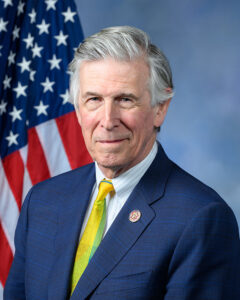Monday, Feb. 13, prior to a regular business meeting of the Falls Church City Council, a town hall meeting will be held to present the Watershed Management Plan developed after more than two years of study by a volunteer citizen task force.
That determination was made at last Monday’s F.C. Council meeting. A published version of the plan is also being circulated to key civic organizations for review and input, with plans for a final adoption by the City Council on Feb. 27.
The plan was devised by a 14-member Watershed Advisory Committee, working with City staff and the AMEC, Inc., consulting firm. Its goals were defined as (1) reducing flooding, (2) restoring and maintaining a healthy local aquatic ecosystem and (3) cost-effectively comply with state and federal water quality and storm water management regulations.
Two factors spurred the effort in the past year. First was the “100 Year Flood” rain event of Sept. 8, 2011, when massive incidents of storm water overflows, co-mingling of fresh water and sewage, and back-ups into residential basements were reported.
Second was the calculation that the pending Virginia watershed improvement plan, in conjunction with the U.S. Environmental Protection Agency, for the Chesapeake Bay will slap the City with a whopping $24 million bill over the next 15 years.
The agencies structured a fine schedule for non-compliance that could cost even more, as much as $32,500 a day.
The City’s Watershed Management Plan, therefore, involves an array of 11 projects around the City and the creation of a dedicated funding stream for the program. A enterprise fund for storm water management would be, among other things, financed with “storm water utility fees” and “recognizes there is a direct correlation between the amount of impervious cover on a property and the burden a property places on the public storm water management system.”
The 11 projects are estimated to cost $3.2 million over the next five years to design and construct, and will qualify as City contributions to the state and federal Chesapeake Bay mandates.
Other developments from this Monday’s City Council meeting:
• A report from the Mary Riley Styles Library Board of Trustees noted the largest-ever number of children registered in the Summer Reading Program (1,129), over 20,000 children attended programs in the Children’s Department during the year, and for the fourth year in a row, the library was designated a Four-Star Library, a national award given to only three libraries in Virginia and 262 out of 7,513 in the U.S.
• A 2011 Open Space Annual Report was presented, urging “prompt action by the Council to move forward on the rectangular, multi-use field project and on authorizing staff to pursue properties, easements or agreements to help meet outlined priorities.”
• City Manager Wyatt Shields agreed to meet with a citizen, Cynthia Kuhn, who showed up with a two-foot segment of sewer line clogged with tree roots that caused $13,000 of damage to her home that she claimed the City is liable for because of a 1992 error of planting a tree above the sewer line.













